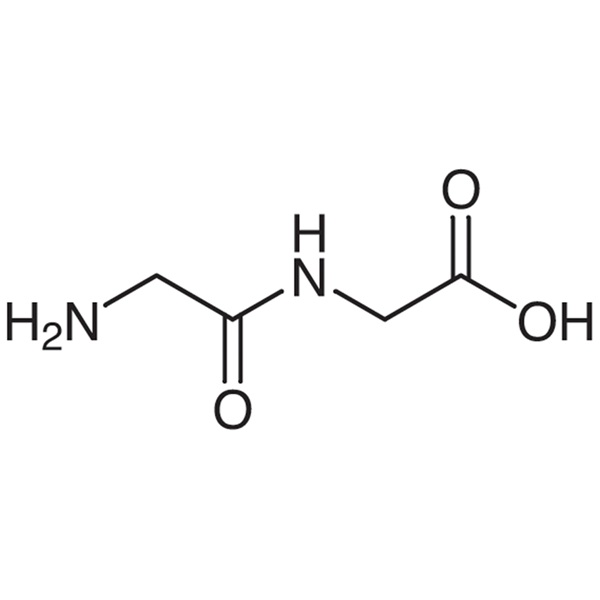Glycylglycine CAS 556-50-3 (H-Gly-Gly-OH) Assay 98.5~100.5% Factory High Quality
Shanghai Ruifu Chemical Co., Ltd. is the leading manufacturer and supplier of Glycylglycine (H-Gly-Gly-OH; Gly-Gly) (CAS: 556-50-3) with high quality, commercial production. Glycylglycine is sold well both at domestic and abroad market, and is highly appraised by customers. We can provide worldwide delivery, small and bulk quantities available. Welcome to order. Please contact: alvin@ruifuchem.com
| Chemical Name | Glycylglycine |
| Synonyms | H-Gly-Gly-OH; Gly-Gly; Glycylglycine Free Base; Gly-Gly Free Base; Gly2; N-Glycylglycine; Diglycine; Glycine Dipeptide; α-Glycylglycine; 2-(Aminoacetamido)acetic Acid |
| Stock Status | In Stock, Production Capacity 300 Tons per Year |
| CAS Number | 556-50-3 |
| Molecular Formula | C4H8N2O3 |
| Molecular Weight | 132.12 |
| Melting Point | 220.0~240.0℃ (dec.) |
| Solubility in Water | Soluble in Water (132 g/L) at 20℃, and Slightly Solube in Ethanol |
| COA & MSDS | Available |
| Brand | Ruifu Chemical |
| Item | Specifications |
| Appearance | White Crystals or Crystalline Powder |
| State of Solution | (Transmittance) Clear and Colorless >95.0% (0.4g /20mL Water) |
| Chloride (as Cl) | ≤0.020% |
| Sulfate (SO4) | ≤0.020% |
| Ammonium (NH4) | ≤0.020% |
| Iron (as Fe) | ≤30ppm |
| Heavy Metal (Pb) | ≤10ppm |
| Arsenic (as As2O3) | ≤1.0ppm |
| Other Amino Acids | Chromatographically Not Detectable |
| Loss on Drying | <0.20% (at 105℃ for 4 hours) |
| Residue on Ignition (Sulfated) | <0.10% |
| Assay | 98.5~100.5% |
| Purity / Analysis Method | >99.0% (HPLC) |
| pH | 4.5~6.0 (20℃, 1 M IN H2O) |
| Infrared Spectrum | Conforms to Structure |
| Test Standard | AJI97 |
| Shelf Life | 24 Months Under the Original Packaging if Stored Properly |
Glycylglycine (CAS: 556-50-3) AJI97 Test Method
Glycylglycine, when dried, contains not less than 98.0 percent and not more than 100.5 percent of Glycylglycine (C4H8N2O3).
Solubility (H2O, g/100g): 14.3 (25℃)
Specifications:
State of Solution (Transmittance): 0.4g in 20ml of H2O, spectrophotometer, 430nm, 10mm cell thickness.
Chloride (Cl): 0.7g, A-1, ref: 0.40ml of 0.01mol/L HCl
Sulfate (SO4): 1.2g, (1), ref: 0.50ml of 0.005mol/L H2SO4
Iron (Fe): 0.5g, ref: 1.5ml of Iron Std. (0.01mg/ml)
Heavy Metals (Pb): 2.0g, (1), ref: 2.0ml of Pb Std. (0.01mg/ml)
Arsenic (As2O3): 2.0g, (1), ref: 2.0ml of As2O3 Std.
Other Amino Acids: Test sample: 10μg, G-1-a
Loss on Drying: at 105℃ for 4 hours
Residue on Ignition (Sulfated): AJI Test 13
Assay: Dried sample, 130mg, (1), 3ml of formic acid, 50ml of glacial acetic acid, 0.1mol/L HCLO4 1ml=13.212mg C4H8N2O3
pH: 1.0g in 10ml of H2O
Recommended storage limit and condition: Preseved tight containers at controlled room temperature (1 years).
Package: Bottle, Aluminium foil bag, 25kg/Cardboard Drum, or according to customer's requirement.
Storage Condition: Store in sealed containers at cool and dry place; Protect from light and moisture.


556-50-3 - Risk and Safety
Hazard Symbols Xi - Irritant
Risk Codes 36 - Irritating to the eyes
Safety Description S24/25 - Avoid contact with skin and eyes.
S26 - In case of contact with eyes, rinse immediately with plenty of water and seek medical advice.
WGK Germany 3
FLUKA BRAND F CODES 10
TSCA Yes
HS Code 2922509099
Glycylglycine (Gly-Gly) (CAS: 556-50-3) is the dipeptide of glycine, a non-essential amino acid, used in biochemical research. It is the simplest of all dipeptides and is used as a starting template for preparation of more complex peptides. Glycylglycine, a zwitterionic biological buffer often used in biological and biochemical research, and also as a part of cosmetic formulations. Uses of Glycylglycine Buffer: Glycylglycine is a dipeptide also used as a buffering agent in enzymatic assays and in medical procedures. Used as a lysis buffer, running buffer and an enzymatic reaction buffer. Used in ion exchange chromatography. It is also employed as a practical buffer with a buffering range of 7.5 - 8.9 (at 25°C). Valuable agent for experiments investigating peptide transport and absorption.
The application of Glycylglycine in products 1. Food: dairy food, meat food, baked food, pasta food, flavored food, etc. 2. Medicine: health food, fillers, medical raw materials, etc. 3. Industrial manufacturing: oil industry, manufacturing industry, agricultural products, batteries, precision castings, etc. 4. Tobacco products: can replace glycerin for tobacco fragrance, antifreeze moisturizer. 5. Cosmetics: facial cleanser, beauty cream, toner, shampoo, facial mask, etc. Used in cosmetics as a moisturizer and inflammation inhibitor for skin care products. 6. Feed: canned pet, animal feed, aquatic feed, vitamin feed, veterinary medicine products, etc.
-
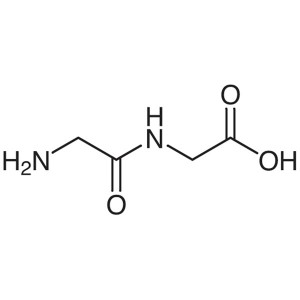
Glycylglycine CAS 556-50-3 (H-Gly-Gly-OH) Assay...
-
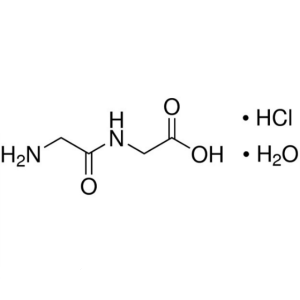
Gly-Gly.HCl.H2O CAS 23273-91-8 Purity >99.0% (T...
-
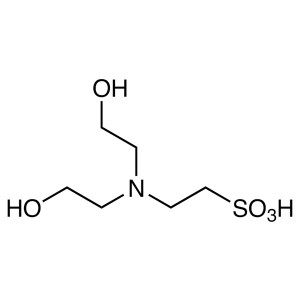
BES CAS 10191-18-1 Purity >99.5% (Titration) Bi...
-
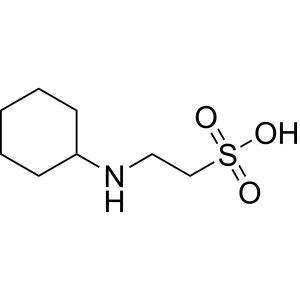
CHES CAS 103-47-9 Purity >99.5% (Titration) Bio...
-
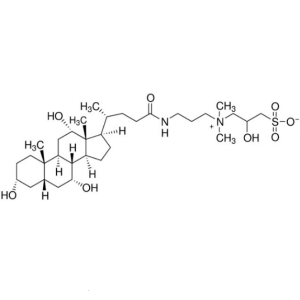
CHAPSO CAS 82473-24-3 Purity >99.0% (Titration)...
-
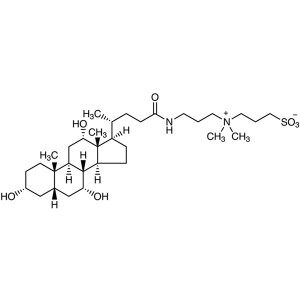
CHAPS CAS 75621-03-3 Purity >99.5% (Titration) ...
-
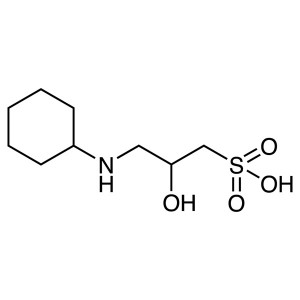
CAPSO CAS 73463-39-5 Purity >99.0% (Titration) ...
-
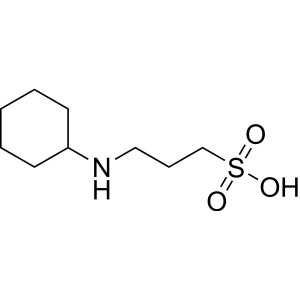
CAPS CAS 1135-40-6 Purity >99.0% (T) Biological...
-
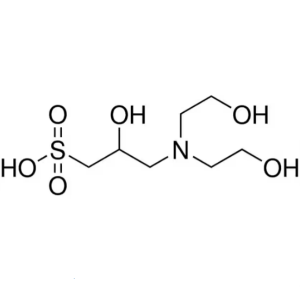
DIPSO CAS 68399-80-4 Purity >99.0% (Titration) ...
-
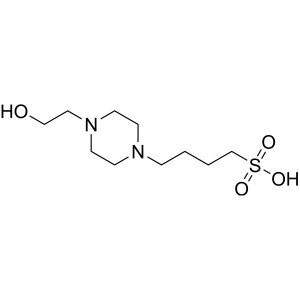
HEPBS CAS 161308-36-7 Purity >99.0% (Titration)...
-
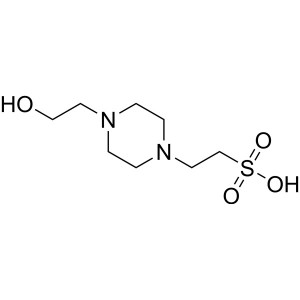
HEPES CAS 7365-45-9 Purity >99.5% (Titration) B...
-
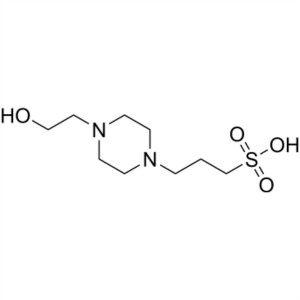
HEPPS CAS 16052-06-5 Purity >99.5% (Titration) ...
-
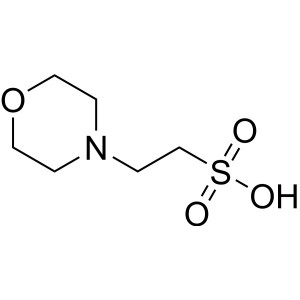
MES CAS 4432-31-9 Purity ≥99.50% (Titration) Bi...
-
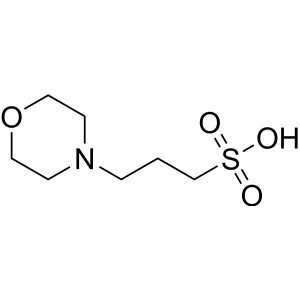
MOPS CAS 1132-61-2 Purity ≥99.5% (Titration) Bi...
-
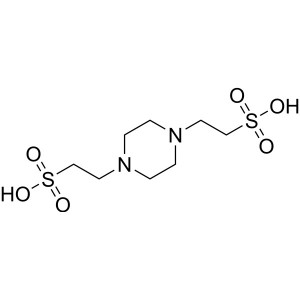
PIPES Free Acid CAS 5625-37-6 Purity >99.5% (Ti...
-
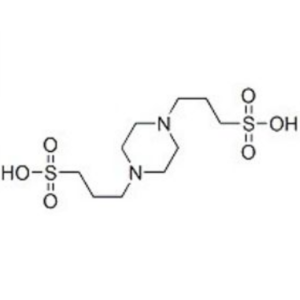
PIPPS CAS 5625-56-9 Purity >97.0% (Titration) B...

